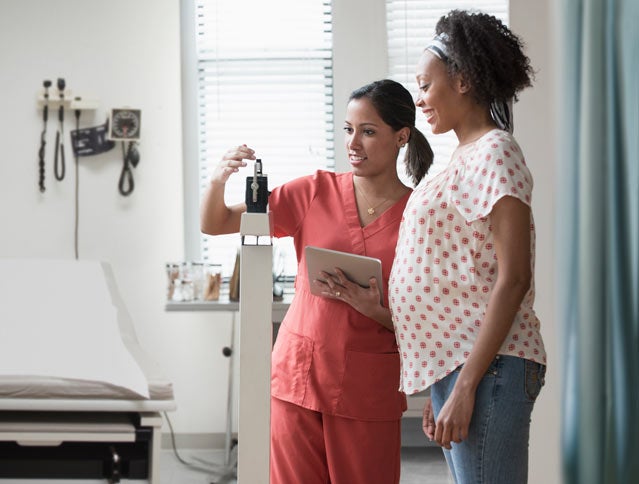Obstetrics & Gynecology
Find answers to your questions about female health so you can feel empowered at every stage.
Explore obstetrics & gynecology
Causes
Understand the underlying causes behind gynecological symptoms and health concerns during pregnancy.
Definition
Read up on basic terms, procedures, conditions, and clinical definitions in the ob/gyn field.
Diagnosis
Everything to know about getting a diagnosis from a gynecologist or obstetrician, and what to do afterwards.
Management
Resources around managing health conditions related to gynecological health and obstetrics.
Prevention
Preventative care in ob/gyn starts with regular maintenance appointments such as pap smears.
Recovery
Get helpful information on recovering from gynecological conditions, as well as post-childbirth after-care.
Related Conditions
Understand health conditions or complications related to pregnancy and gynecological health.
Symptoms
Educational content and resources for understanding your symptoms before or after seeing your ob/gyn.
Featured

Symptoms
Signs of Pregnancy
Usually, the most obvious sign is when a woman has a missed period, but each woman may experience the signs of pregnancy differently.
Prevention
Pap Test
It’s important to talk with your healthcare provider about when and how often you should have a Pap test.

Your period
The Menstrual Cycle: An Overview
A woman is generally most fertile (able to become pregnant) a few days before, during, and after ovulation.
Premenstrual Syndrome (PMS)
Premenstrual syndrome (PMS) is a group of emotional and physical symptoms many women have in the days before their period starts. Lifestyle changes and sometimes medicines can help manage symptoms.
Menstrual Pain
Menstrual pain is common in women of all ages. It's the feeling of cramps you get in your lower belly with your monthly period. Menstrual pain usually isn't a serious condition. In this video, you'll learn how this condition develops and what you can do to minimize its effects.
Tools for your health
Cervical Cancer Quiz
Screening can catch the earliest signs of cervical cancer, which can lead to better outcomes. Learn more about cervical cancer and prevention with this quick quiz.
Take the quizDue Date Calculator
Use this helpful tool to identify and keep track of your estimated due date, and plan for the birth of your baby. See how the due date calculator works.
Use the calculatorPMS Quiz
Answer this one: How many symptoms have been tied to PMS? If you guessed more than 100, you're right. Test your knowledge with this quiz.
Take the quizGetting pregnant
 Management
Management
Planning a Pregnancy
Planning ahead and taking care of yourself before becoming pregnant is the best thing you can do for you and your baby.
 Symptoms
Symptoms
Signs of Pregnancy/The Pregnancy Test
The signs of pregnancy vary from woman to woman, but the most obvious sign usually is a missed period.
 Diagnosis
Diagnosis
Common Tests During Pregnancy
Certain tests and screenings may be scheduled during your pregnancy. Your healthcare provider will advise you on which tests you'll need.
Prevent or Plan
Test your knowledge about contraception and pregnancy with our quizzes.
Is this normal?
Menopause: The basics
Perimenopause
Perimenopause is the time around menopause when your body begins to change. You become less fertile and hormone levels fluctuate.
Introduction to Menopause
When a woman permanently stops having menstrual periods, she has reached the stage of life called menopause. This stage signals the end of a woman's ability to have children.
Low Estrogen Levels in Menopause
In addition to regulating the menstrual cycle, estrogen affects the reproductive tract, the urinary tract, the heart and blood vessels, bones, breasts, skin, hair, mucous membranes, pelvic muscles, and the brain.
Watch & Learn: Menopause Basics
When a person permanently stops having menstrual periods, this is called menopause. This means they can no longer get pregnant. Many healthcare providers use the term menopause to refer to the period of time when hormone levels start to change.






